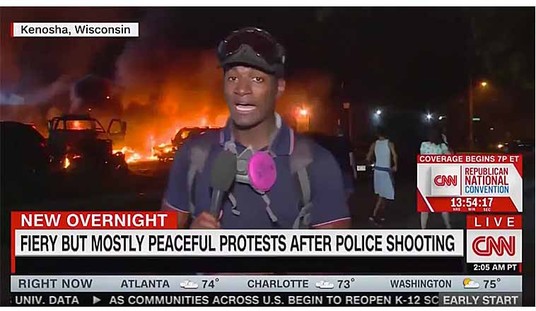There are multiple reports out this morning that the leader of the Yemeni based Al-Qaida in the Arabian Peninusla, Nasr al-Ansi, released a video claiming responsibility for last week’s terror attack in Paris against the French satirical publication Charlie Hebdo:
Leader of al-Qaeda's Yemen group claims responsibilty for Charlie Hebdo attack http://t.co/ZEKEYS8DZB pic.twitter.com/PBCB9Wdw6g
— Daily Mail Online (@MailOnline) January 14, 2015
Al-Qaida In Yemen Takes Responsibility For Paris Attack http://t.co/XW6XvAH6vY
— NPR (@NPR) January 14, 2015
Yemen’s al Qaeda branch claims responsibility for #CharlieHebdo attack. Full story: http://t.co/TPSVnmdAWd
— The Wall Street Journal (@WSJ) January 14, 2015
FLASHBACK: In President Obama’s address to the nation on September 10, he used Yemen as an example of a successful anti-terror strategy that could be employed in the fight against ISIS:
Now, it will take time to eradicate a cancer like ISIL. And any time we take military action, there are risks involved –- especially to the servicemen and women who carry out these missions. But I want the American people to understand how this effort will be different from the wars in Iraq and Afghanistan. It will not involve American combat troops fighting on foreign soil. This counterterrorism campaign will be waged through a steady, relentless effort to take out ISIL wherever they exist, using our air power and our support for partner forces on the ground. This strategy of taking out terrorists who threaten us, while supporting partners on the front lines, is one that we have successfully pursued in Yemen and Somalia for years. And it is consistent with the approach I outlined earlier this year: to use force against anyone who threatens America’s core interests, but to mobilize partners wherever possible to address broader challenges to international order.
And White House Press Secretary Josh Earnest later defended the president on Yemen in this exchange with a reporter at the daily press briefing:
MR. EARNEST: Jim, I can say definitively that the President has ruled out sending American boots on the ground to be engaged in a combat role in Iraq and in Syria. The strategy that the President has put forward to deal with the threat posed by ISIL in Iraq and Syria is substantially different from the strategy that was put in place in advance of the last conflict in Iraq.
What we’re considering here is more akin to the kinds of counterterrorism operations that have been successfully implemented in some other regions of the world. And those other countries, using some of our military capability, using our support for local fighters on the ground who could take the fight in their own country to the extremist organizations that are operating there, and building up the local government structures of some of these other nations — that that has been a successful strategy for mitigating the threat, and even degrading the threat that is posed by –
Q Where has that strategy been successful?
MR. EARNEST: Well, they’re places like –
Q Not Somalia or Yemen.
MR. EARNEST: Well, those are actually two of the countries that I was just going to cite. There is no doubt that in these two places the United States has deployed –
Q Somalia –
MR. EARNEST: Let me finish. That when the United States has deployed a strategy, that strategy has been specifically to work with local governments to build up the capacity of those central governments, to work with local fighters to make sure that we’re increasing their capacity so that they can take the fight on the ground to these extremist organizations, and, where necessary, American military might can be deployed in support of those fighters on the ground to degrade the capacity of those individual organizations.
And just a couple of weeks ago, we saw an effort in Somalia, led by Somalian fighters, to take out the leader of al-Shabaab in that country. That will have the effect of degrading and ultimately defeating al-Shabaab. Is that mission completed? Of course not. They continue to serve as a threat. But there is no doubt that this strategy has been successful.
Q You’re holding up those countries as success stories, though.
MR. EARNEST: What I’m holding them up as — as a place –
Q You’ve had some successes here and there, but you wouldn’t hold them up as success stories.
MR. EARNEST: They are a place where the American counterterrorism strategy that has been put in place by President Obama has succeeded in degrading the threat that those organizations pay to the United States. And we intend to implement an analogous strategy against ISIL.
Maybe it’s “If you like your success, you can keep your success”?
***
Related:
What happened to ‘on the run’? #CharlieHebdo suspect tied to al-Qaeda in Yemen
























Join the conversation as a VIP Member